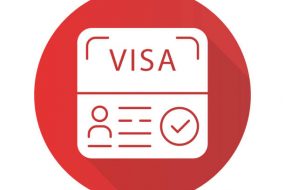

The United Kingdom (UK) promotes entrepreneurship, with millions of self-employed company owners, sole traders, and freelancers. The processes and documentation for how to start a business and a start up visa business plan in the UK aren’t immediately evident to the budding entrepreneur, though.
Setting up a business in the UK, as well as creating a business plan can be a complex business, especially if you’re from outside of the European Union. This guide offers advice on starting a UK business along with a start up visa Business plan. This included the different types of company structures, tax, administration, and whether you need a visa. This is very similar to an EIS business plan. Once this is successful, support is available if a firm needs help with business plan in the UK.
Let’s have a look at the following requirements.
Who Is This Visa For?
The Entrepreneur visa category (Tier 1) is for foreign national business people who want to come to the UK to start a new business or join and invest funds into an existing business. Interval business will have to start up visa business plan (similar to SEIS business plan and EIS business plan). Under the Entrepreneur category, the Entrepreneur visa applicant’s immediate family members are able to join them in the UK. This includes the main applicant’s partner and children under the age of 18. Note that one of the benefits of this category is that the applicant’s children will be eligible to take part in the UK’s education system.
This visa category provides a pathway to permanent residency and British citizenship.
What Type of Work can an Entrepreneur Visa Holder Undertake?
Entrepreneur visa holders cannot seek or undertake paid employment in the UK other than working for the business or businesses that they have either established, joined, or taken over. They also won’t be able to receive support services to help with business plans in the UK.
How To Qualify For An Entrepreneur Visa?
To qualify for an entrepreneur visa the applicant needs to be over 16 years of age and must score at least 95 points based on the following criteria:
Sufficient funds available to them for investment (75 points); and
English language ability (10 points); and
Ability to satisfy the UK maintenance requirements (10 points)
To satisfy the funds requirement the applicant must have access to either:
At least £200,000, with all funds to be disposable (free to spend) and held in a regulated financial institution; or
At least £50,000 available from one of the following sources:
- 1 or more registered venture capital firms regulated by the Financial Services authority; or
- 1 or more UK entrepreneurial seed funding competitions listed as endorsed on the UK Trade and Investment website.
- 1 or more UK government departments, which have made the funds available for the specific purpose of establishing or expanding a UK business.
How Long Is An Entrepreneur Visa Valid For?
Entrepreneur visas are granted for a period of three years and four months. This can be extended for an extra two years provided specific requirements are met. See the section below about Entrepreneur visa extensions for more information.
Entrepreneur Visa Extensions
Entrepreneur visas can be extended for two more years if the following conditions are met:
- The visa holder has invested £200,000 in the company.
- The company has been registered within 6 months of the date the visa holder was granted permission to stay in the UK under the Entrepreneur category.
The visa holder has created at least two full-time positions for settled workers. For a new business this means that an aggregate of two positions, full time or equivalent, must have been created with each lasting for at least one year. If the entrepreneur visa holder has taken control of an established UK business, their investment and presence in the company must have created two positions similar to those outlined above.
Note that when making an application to extend an entrepreneur visa the application should also include any dependents who are on visa holder’s current visa (including children who have turned 18 during their stay in the UK).
Entrepreneur Visas and Settlement in the UK
Entrepreneur visas offer a pathway to settlement in the UK. This is also known as Indefinite Leave to Remain (ILR).
To qualify for ILR, the Entrepreneur visa holder must:
Have lawfully resided in the UK on this visa for 5 years and be able to show sufficient knowledge of the English language and life in the UK.
Note that the visa holder cannot have more than 180 days of absence from the UK in each of these 5 years.
Alternatively, entrepreneur visa holders can achieve ILR status after 3 years if they meet the following criteria:
- They have invested £200,000 in the company; and
- The company was registered within 6 months of the date they were granted permission to stay in the UK under the entrepreneur category; and
- They have created at least 10 full-time positions for settled workers; or Established a new business with turnover of at least £5m during the 3 year period
- Applying for British Citizenship (naturalisation).
Typically, Entrepreneur visa holders can apply for British citizenship after having spent 6 years in the UK, but there are faster routes available for those responsible for creating businesses with a high turnover or a high number of jobs.
To learn more, please visit our ‘New Start Up Visa’ and ‘Why Does a Business Need a Business Plan?’ blogs.
Switching into the Entrepreneur Visa Category
Foreign nationals can apply to switch into the Entrepreneur visa category if they are already in the UK under one of the following visa categories and can meet the Entrepreneur visa eligibility requirements:
- Tier 1 (General)
- Tier 1 (Investor)
- Tier 1 (Graduate entrepreneur)
- Business person
- Innovator
- Highly Skilled Migrant Programme
- Work permit holder
- Self-employed lawyer
- Writer, composer or artist
- Investor
- International Graduate Scheme
- Fresh Talent: Working in Scotland Scheme
- Tier 2 Prospective entrepreneur
A visitor who has been carrying out permitted activities as a prospective entrepreneur
If you have a specific type of funding it may be possible to switch to the Entrepreneur visa category from one of the following categories:
- Tier 1 (General)
- Tier 1 (Post-study work)
- Tier 4 Student Student re-sitting an examination
- Student nurse
- Student writing up a thesis
- Postgraduate doctor or dentist
Please note that if you holder another UK visa not listed above you will need to leave the UK and submit your Entrepreneur visa application from abroad.
Conclusion
In conclusion, this topic is something that should be put into consideration for business people wanting to build a business in the UK. The process begins with creating a solid start up visa business plan in order to design a strong foundation. Since B&F Services is a company that delivers services for UK businesses and internationally. One of the services they offer is to help with business plans in the UK. Visit the official website to see what services they offer to help.








